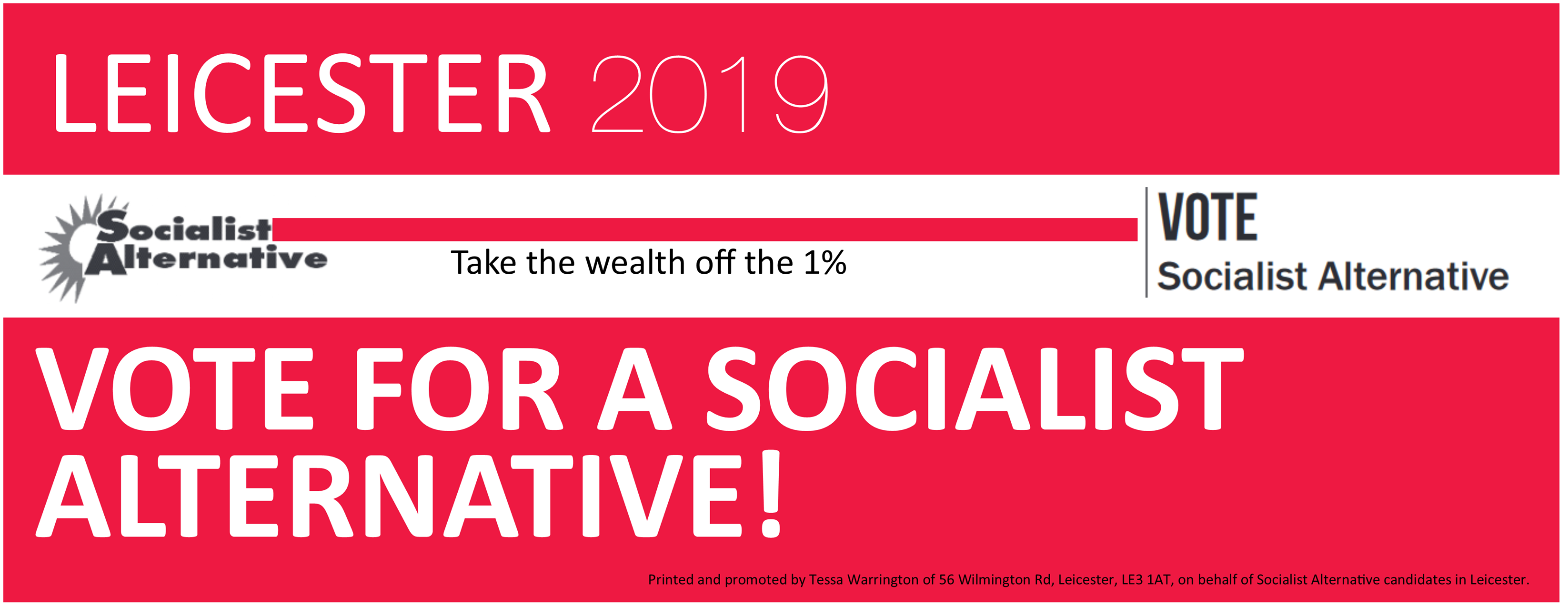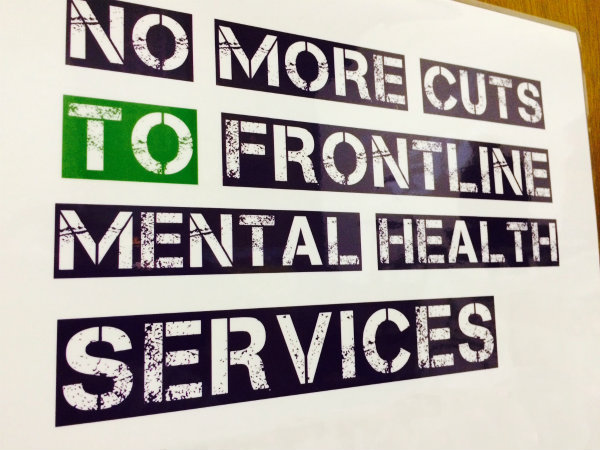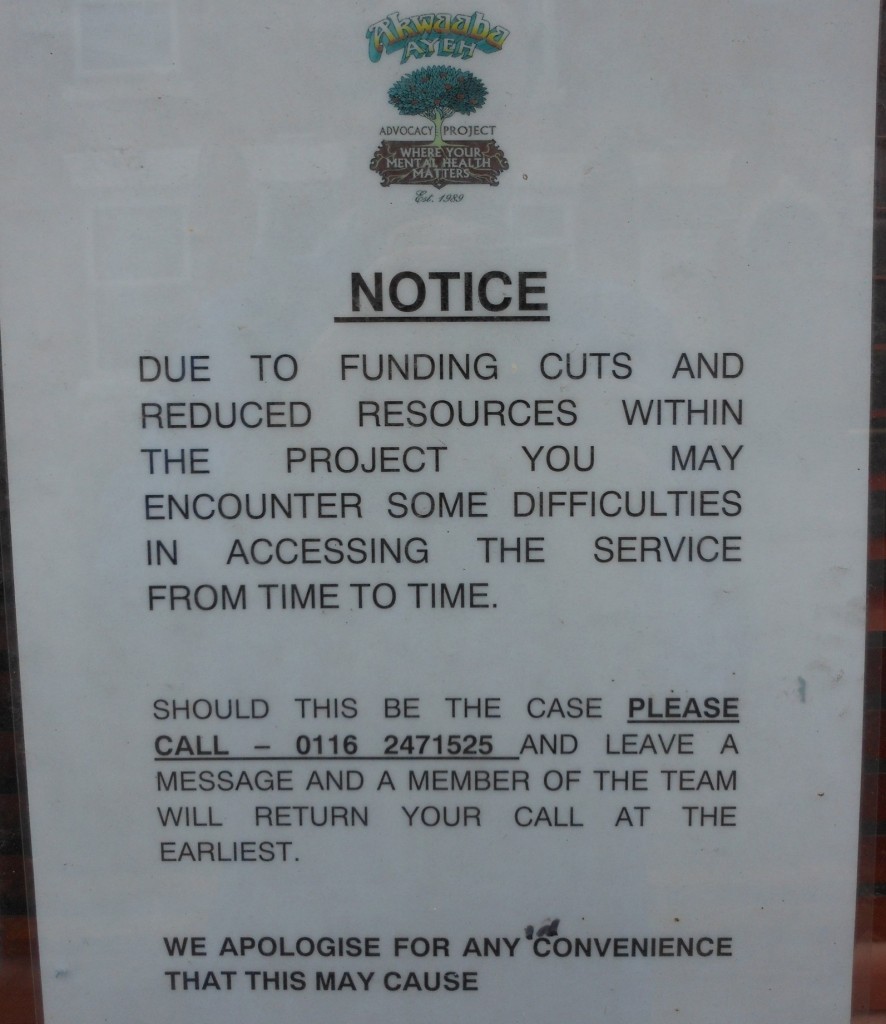Cuts to Mental Health Funding Affect the Most Vulnerable
Mental health has long been seen by authorities as the “Cinderella” of the health service. It attracts relatively little funding because it is not visible and because people who suffer from mental health problems are less likely to be able to articulate their concerns. The cuts being passed on by my council in Leicester are affecting vulnerable people, and will end up costing us more in terms of healthcare, because people’s problems will be exacerbated by funding cuts.
A supporter, angry at the cuts to local mental health services, contacted Leicester Socialist Party. He had been given help with confidence-building skills from a local service called Akwaaba Ayeh. He had found the staff there very helpful and experienced. It has been around for over 20 years, helping some of the city’s most vulnerable people and is a specialist service for ethnic minorities, situated in Highfields, a diverse, working-class area in the city, with high unemployment and levels of poverty.
Nearby, a mental health care charity, the Adhar Project, also serves ethnic minorities in the city. The two services are being closed down and merged, in a building situated miles away from the local community. This change is being driven by cuts to council services, not by people’s needs.
Due to the stigma surrounding mental health in many communities, there is a reluctance for people to come forward. This is why specialist services should be situated within the communities they serve, to help overcome such barriers, and make people feel welcome.
When I tried to visit the centre, to discuss the cuts with staff, and ask if the Socialist Party could help, a notice informed me that it would be closing next month; the building was currently empty. With the move elsewhere, I have been informed that cuts are being made to staffing levels. Charges for meals have been increased from £2 a month to £6 a week – representing a huge difference for people on benefits. The amount of activities on offer have been reduced – previously groups were on offer, which would help people find solutions to their problems together. The new site is over-crowded and only offers bingo and cooking.
Mental health difficulties often arise from long-term unemployment, social isolation and discrimination against communities, all of which are exacerbated under the system of capitalism. Mental health services should be delivered locally, in an environment where people feel comfortable and safe. They should offer therapeutic activities to help recovery. They should be directly funded by the council and NHS, and not have to rely on charity or lottery funding.
Socialist Party members pointed out in the recent election campaign that cuts to public services are not necessary. Leicester’s overwhelmingly Labour-controlled council is meekly passing on Tory cuts, rather than opposing them. The council actually have £50m of funds in reserve and is adding to this pot “for a rainy day”. We say that cuts are raining down on vulnerable people now! If councillors had the will to oppose cuts, they could keep services running, while building opposition amongst trade unions and the wider community, including protests and if necessary, strike action and occupations. This could empower people, angry at service closures, to fight back and demand money from central government. This would give vulnerable people confidence and purpose, rather than accepting austerity and cuts, which is all that mainstream political parties have to offer.
As part of TUSC (the Trade Unionist and Socialist Coalition), Socialist Party members will continue fighting for a socialist future for all, free from discrimination and for investment into services rather than cuts.




